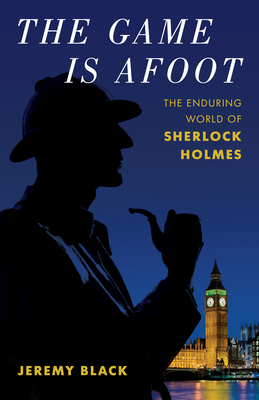
Fans of Sherlock Holmes will delight to investigate Victorian England, a world where crimes large and small abound and where dark corners and well-lit drawing rooms alike hide villainy. Through the enduring eye of Sherlock Holmes, noted historian Jeremy Black traces how Holmes and his milieu evolved in Sir Arthur Conan Doyle's books and how Holmes continues to resonate today. Black explores the context of Doyle's ideas and stories and why they struck such a chord with readers in London, and ultimately the world. He portrays a complex man with eclectic interests, from soccer to spiritualism, from cricket to divorce-law reform. Standing twice for Parliament, Doyle was a committed meritocrat whose political experiences and values were expressed through his writings. Reading the Holmes stories through the lens of Doyle's multifaceted career, Black throws fresh light on the values expressed in them and how Holmes would have been perceived at the time. He traces the imperial strand in the Holmes stories and his treatment of America and Europe. Drawing on a masterly knowledge both of Doyle's era and his writings, this entertaining and wide-ranging book uses the Holmes stories to bring Victorian England to vibrant life, a world where crimes large and small abound and where dark corners and well-lit drawing rooms alike hide villainy. Holmes was a hero and an inspiration for many a character who redefined the idea of detection and the detective, a private man of great public importance. Here is his story.
Author

Professor Jeremy Black MBE is an English historian and a Professor of History at the University of Exeter. He is a senior fellow at the Center for the Study of America and the West at the Foreign Policy Research Institute. He is the author of over 100 books, principally but not exclusively on 18th-century British politics and international relations, and has been described as "the most prolific historical scholar of our age". Black graduated from Queens' College, Cambridge with a starred first, and then undertook postgraduate work at St John's and Merton Colleges, Oxford. He taught at Durham University for 16 years from 1980 to 1996, firstly as a lecturer and then as a Professor. In 1996 he moved to Exeter University where he took up the post of Professor of History. He has lectured extensively in Australasia, Canada, Denmark, France, Germany, Italy and the U.S.. He was editor of Archives, the journal of the British Records Association, from 1989 to 2005. He has served on the Council of the British Records Association (1989–2005); the Council of the Royal Historical Society (1993–1996 and 1997–2000); and the Council of the List and Index Society (from 1997). He has sat on the editorial boards of History Today, International History Review, Journal of Military History, Media History and the Journal of the Royal United Services Institute (now the RUSI Journal). He is an advisory fellow of the Barsanti Military History Center at the University of North Texas. He was awarded an MBE in 2000 for services to stamp design, as advisor to the Royal Mail from 1997.